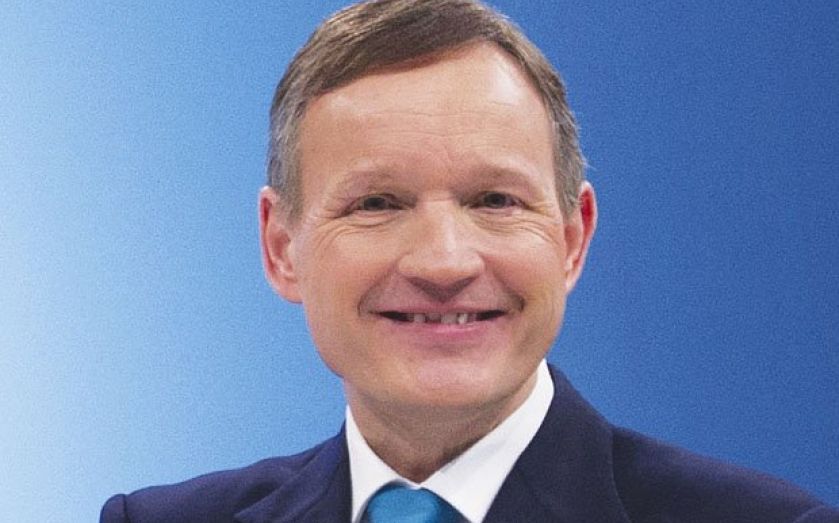Banks take a bashing

■ Barclays forced to fix £12.8bn gap
■ JP Morgan pays $410m settlement
■ Billions more set aside for PPI
■ Deutsche Bank cuts balance sheet
■ RBS investors file £4bn claims
BILLIONS of pounds were wiped off banks’ stock market values yesterday as a barrage of regulatory and legal action shocked markets.
Barclays and Deutsche Bank both revealed plans to shore up their balance sheets to meet regulators’ demands, while RBS was handed court papers threatening £4bn in potential shareholder claims and JP Morgan paid a hefty fine to settle claims of price fixing.
And British banks are now bracing themselves for more than £20bn-worth of PPI compensation claims.
Barclays’ long-awaited settlement with the Prudential Regulation Authority (PRA) will see it launch the biggest bank share issuance since the height of the financial crisis, as it taps shareholders for £5.8bn to help fill the £12.8bn hole that the watchdog has found in its finances.
German giant Deutsche Bank has also bowed to regulatory demands, unveiling plans yesterday to cut another €250bn (£217.5bn) from its balance sheet to meet tough new European rules on capital buffers.
And US star performer JP Morgan was hit with a $410m (£269.1m) bill to settle claims it manipulated energy markets in America.
Meanwhile RBS is facing legal claims from shareholders who say the bank misled them in 2008, and are seeking up to £4bn.
In addition to the new provisions banks are making to compensate customers who were missold payment protection insurance (PPI), they are also holding back billions more to repay firms that were wrongly sold interest rate swaps.
The enormous costs involved show banks are firmly in the grip of regulators, with privately-owned lenders forced to make huge changes by the authorities even when investors consider them fully secure.
“There are massive changes in the regulatory world with the creation of the Bank of England’s Prudential Regulation Authority and the Financial Conduct Authority, and the new governor at the Bank of England,” Barclays chief Antony Jenkins said as he unveiled the plan to raise £5.8bn in new shares, a further £2bn in contingent convertible bonds (cocos) and the schedule for retaining more profits.
“Some of this is the regulators settling in, and over time we will come to the right place with that.”
Barclays is raising the funds after the central bank began investigating lenders’ capital positions last year.
While Barclays was already boosting its capital buffers and cutting leverage to meet incoming regulations, the authorities said last month it had to accelerate the process.
The firm’s new plan will involve closing more of its investment bank to cut demands on capital resources. Barclays’ shares fell 5.74 per cent, wiping more than £2bn off its market value.
Deutsche Bank is under similar pressure from European regulators and had to announce further plans to slim down. The German lender said its leverage ratio is already at the three per cent level required under incoming regulations, in part because a share issuance in April raised €3bn.
But official pressure is pushing the lender to move that closer to four per cent, cutting risky lending further. Deutsche’s shares fell 4.88 per cent yesterday.
Meanwhile RBS is facing claims it misbehaved when it asked shareholders for more funds in 2008.
Shareholder groups have launched cases against the bank and some former directors claiming they were misled as to the strength of the bank in 2008, and lost money as a result. RBS declined to comment.
And in the latest price fixing scandal to hit banks, JP Morgan agreed to settle with the Federal Energy Regulatory Commission, after being accused of using abusive trading strategies to increase the profitability of power plants it operated in California.
It is part of a wave of legacy problems battering the sector.
Barclays yesterday set aside £2bn more to pay for misselling compensation, made up of £650m for interest rate swaps and £1.35bn for PPI. This take its compensation bill to more than £4bn, and the PPI bill for the industry to over £17bn.
With the other big banks yet to report their second quarter results, analysts expect the total to rise, potentially to £20bn.
Lloyds is the worst performer so far with £6.8bn set aside for PPI, while RBS expects a bill of £2.2bn and HSBC £1.6bn.
- Bankers as trapeze artists, central planners and markets
- Investors rally round Barclays' boss
- Bottom Line: Antony Jenkins’ plans are being undermined for no good reason
- Bank to fight watchdog’s Qatari claims
- Hamstringing banks with higher capital requirements will not stop the next crisis